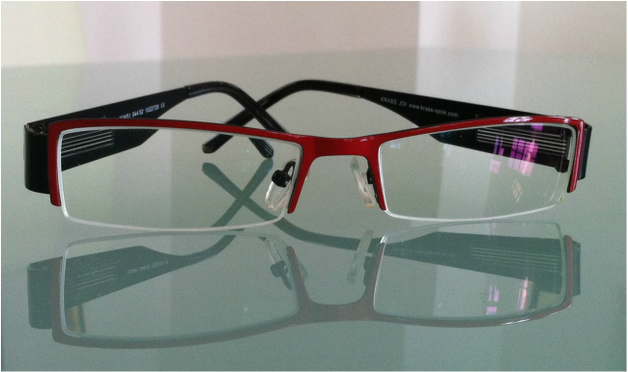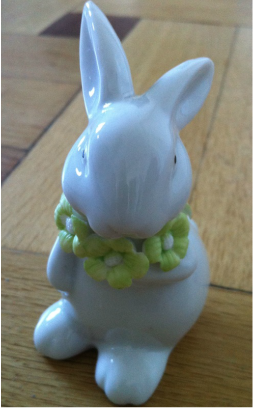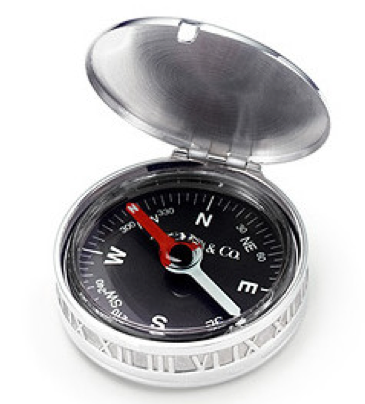 It's refreshing to see more people speaking publicly about their "Dirty Little Secret" - in many companies and country cultures, there are still folks that think seeking support to grow is sign of weakness when instead, it is a strength. I liked this article from Forbes by guest writer Harley Finklestein, COO at Shopify, as he candidly shares his thoughts on how he went from feeling he could do everything by himself to understanding why booking his first appointment with his coach was the smartest business decision he ever made. He also shares how working with his coach helps him in both his business and personal lives. Lastly, if you are curious about the experiences of other executives, you may find something interesting in the Testimonials section of executivehat.com . Have a great weekend! My Dirty Little Secret: I Have an Executive Coach by Harley Finklestein, COO at Shopify to read about other experiences, read more here: executivehat.com/testimonials.html How many of these 19 habits are in your repertoire? I am missing number 19.... I need to give that one a try. Take a look at this article from INC Magazine which reminds us that "Success starts with the little things."
19 Tiny Habits That Lead To Huge Results by Nicolas Cole Before fixing what you are looking at, check what you are looking through… - Mark Nepo, The Book of Awakening  In his book, The Book of Awakening, Mark Nepo speaks about how we see the world using the example of his grandmother looking out through her only window and complaining about how gray the day was, only to realize that the window was dirty. When he discovered this, his grandmother with humor stated, “Got a dirty eye, see a dirty world…. ”Whether it is a dirty window, a pair of glasses with smudges or reflections of something else, or a mood that affects everything that happens to us, he offers a reminder that we see the world as we choose to see it. While we do not control all the events in our lives, we do have the capability to see things as they are, naked of all the baggage we pile on. It’s not only a question of perspective, but perhaps also one of simplicity devoid of assumptions and or expectations. We don’t control the all the events in our lives, but we do choose what we see and how we interpret those events. Finally, we choose what to do in the face of these events. While coaching clients who want to improve how they manage conflict in their professional or personal lives, I often ask my client to walk through an event, step by step, as it is a movie played on a screen in front of them. First observing what is seen, heard, the actual words and motions. As we dive deeper, the client is often surprised when I play back the words used by the client to describe the situation. Or, the client is surprised when I ask whether some portion of the event that was critical in their interpretation came from the scene itself or from something he or she interpreted from a past experience or an expectation. There is something to be said about learning from our past experiences or using our intuition in dealing with the events in front of us. The tricky part is to be aware of what is an assumption or comes from within ourselves and what is actually being done by another person in front of us. When we become aware of our own internal dialogue or assumptions, it is only then that we can put forth those assumptions to check with the other person if that is what they truly intended. Through more simple questions and communication to clarify, some of the conflicts and misunderstandings could perhaps be avoided. The other factor that can dirty our windows, so to speak, can be our beliefs and expectations. Whether in the office or at home, if we expect the worst from someone without giving them the benefit of the doubt, we will for sure end up with an unpleasant experience that reinforces our beliefs about that person. It can make a simple misunderstanding evolve into an overall sentiment that all is terrible with that person, therefore labeling the identity of the person as “bad.” Likewise, we may also miss critical clues if we expect that anything that a given person does is perfect. Later, we can experience an unpleasant surprise because we “did not see it coming.” Another example of this is a senior leader that is preparing to “fight” for his department at a management meeting. Whether for new product development budget or for issues that his department has encountered, by seeing the meeting as a battlefield, the executive found himself in a defensive position, using terms like “my department” and digging his heels, wondering why no one was listening to his ideas and concerns. In doing so, he probably positioned himself as sitting across the table against his peers, rather than sitting together trying to find the best solutions for the business as a whole. After our discussion, he liked the analogy of being in a boat, each leader having an oar, and each oarsman playing a critical role to move the boat forward. It gave him food for thought as he prepared for his next management meeting. Mark Nepo speaks about the window washing in our minds and in our hearts. He asks us to contemplate what are the ideas and conclusions we have in our minds and in our hearts, and how we can wash these windows through which we see the world. It was a great reminder for me, an invitation for me to see things and other people for what and who they are, not as I believe them to be. I hope that it can also offer you an opportunity for reflection. Thanks !  from INC. Magazine As I think to the leaders I have admired over the years, I found that this article hit the spot. I share it with you as something to reflect upon for your own self as a leader - do you recognize these as a part of your daily repertoire? Which areas do you need to re-incorporate into your daily leadership? Want to Be a Highly Respected Boss? 20 Things to Do Every Day Think about the best boss you've ever known. Here are 20 things I'll bet he or she never stopped doing by Bill Murphy Jr.. read the full article here: http://www.inc.com/bill-murphy-jr/want-to-be-a-highly-respected-boss-20-things-to-do-every-day.html  A very common challenge facing my clients is the overwhelming amount of work they face as they step into the senior executive role. Have you heard of the term "drinking from a fire hose"? Not a very flattering image, yet it can be the perception left with your colleagues and direct reports as you step into your new role. Responding to emails after midnight just doesn't send the message that you are on top of things. In comparison, as I think to leaders that I have aspired to over time, I see a calm and purposeful demeanor, yet they seem to accomplish more and be more knowledgeable than those around them. How do they do it? I like this article by Jacquelyn Smith at Inc. Magazine because it speaks about focus, priorities, creating capacity, and knowing one's own value. A simple yet refreshing read... take a look. from INC. Magazine 3 Qualities that Make High Performers Different from Workaholics While both look like they work hard, high performers have a sustainable work ethic, while workaholics are on the fast track to burnout by Jacquelyn Smith
read the full article here http://www.inc.com/business-insider/what-makes-you-a-high-performer-instead-of-a-workaholic.html
 The New Year is beginning. For some of us, the New Year started on January 1st, for others it starts today with the Chinese (Lunar) New Year (February 3, 2011). It is a time of reflection for many of us, about the year that has closed and about the changes that we want to make in our lives in the coming year. It is a time of opportunity as well, because prospects of facing a new year can provide us with the motivation to mobilize. It gives us the feeling that we can make a fresh start or adjustments to ourselves if we have the desire and will to do so. How many of you have made up your New Year’s resolutions? Now that we are starting February, how many of those are fading away already? Whether you have already done so or not, I would like to I invite you to take a deeper look as you contemplate the resolutions and the changes that you want to make in the coming year. Why New Year’s Resolutions Sometimes Fade Away One most common reasons why New Year’s resolutions get set aside is that the goal you have set is something you feel you “should” do, but in the scheme of things, perhaps it is not truly a priority. While it might have made perfect sense at the time of making the commitment, actions speak louder than words: our actions during the course of the year of will determine whether the goal was really a priority or not....  Learning to Apologize When was the last time you had a situation arise at home or at the office that ended in a less than desirable way? How did you handle it? Did you think about all the things that the other person did that was wrong? Did you contemplate what was your part in this interaction? Did you decide to forget about the situation and just move on? It’s interesting that in most cultures, we say I am sorry or apologize for many little things, whether it is for interrupting someone mid-sentence or stepping into their path in a hallway. For example, in Japan, we say we are sorry if we are about to eat first or leave the room. But when it comes to apologizing for something important with people we care about or those we rely upon at work, we seem to choke on the words. And if we manage to give an apology, it is often immediately followed by an explanation of why we did it. “I’m sorry, but….” The end effect is that we are really good at apologizing for things that are trivial, but for the people that really matter, our attempt at making an apology doesn’t really have an impact. In the end, we risk losing a piece of the goodwill in our relationships that can have a lasting effect in the long run. What Gets in the Way? First thought, sometimes it really doesn’t matter if you feel that the other person was 90% at fault and you were 10% at fault. Anyway, it is rare in any conflict that someone is 100% at fault.... I think that there is a lot of debate on the subject of whether or not the grass is always greener on the other side. Have you caught yourself going down this path? Ever have a friend speak to you about all the reasons why the grass is greener over there? Erma Bombeck, a humorous author writes, “The grass is always greener over the septic tank!” Now that might be taking it a little bit to an extreme. Seriously, the reason why I wanted to write this article is because I wanted to explore people’s perceptions on change and whether or not there is a specific underlying behavior pattern at play. After you read the article, I would truly welcome your discussion on the subject at hand. On the Job Have you ever had a coffee with colleagues and the conversation turns into a downward spiral of comments describing everything wrong with your current employer? Do you find yourself saying, “It wasn’t like this (insert time frame here) years ago. When we started it was like (insert your description of nirvana here).” The thinking progresses. You start to wonder, “Are there better opportunities out there compared to this one?” ... |
|
Services |
Company |




